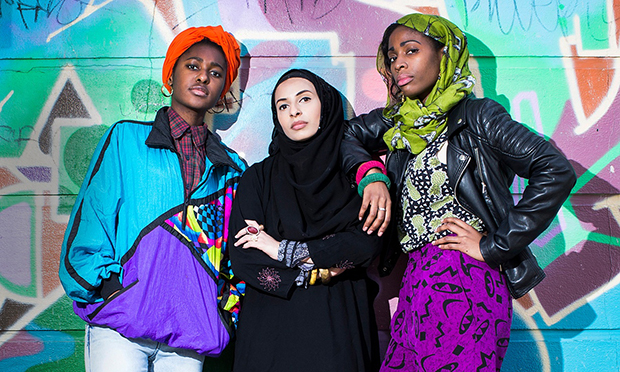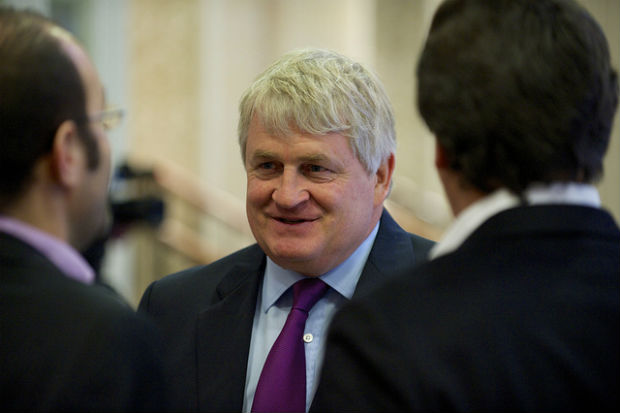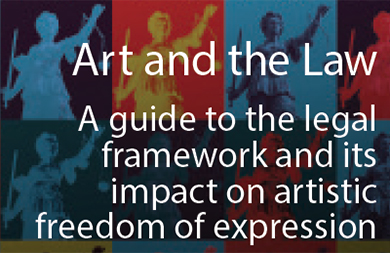14 Aug 2015 | Azerbaijan, Azerbaijan Statements, Campaigns, mobile, Statements
The Sport for Rights coalition condemns the conviction and harsh sentencing of Azerbaijani human rights defenders Leyla and Arif Yunus on 13 August by the Baku Court of Grave Crimes. After a trial marred by irregularities and due process violations, the court convicted the couple on politically motivated charges including illegal entrepreneurship, tax evasion, and fraud, and sentenced Leyla to 8.5 years in jail, and Arif to seven.
“These sentences are outrageous, and aimed purely at sanctioning the legitimate work of these two Azerbaijani human rights defenders. While the heavy sentences are no surprise, they serve to further undermine Azerbaijan’s complete disregard for the international standards of fair trial and due process”, said Souhayr Belhassen, FIDH Honorary President.
“The unprecedented speed with which the Yunus trial was carried out is appalling and tells us a lot about its quality. The judgment is full of inaccuracies due to a total lack of examination of the evidence provided. Violations of international standards of the right to a fair trial were obvious”, declared Gerald Staberock, Secretary General of OMCT.
Leyla, the Director of the Institute for Peace and Democracy, and Arif, a historian and activist in his own right, were arrested in July and August 2014, following Leyla’s public calls for a boycott of the inaugural European Games, which were held in Baku in June 2015. Sport for Rights considered them ‘Prisoners of the Games. Leyla had also been working to compile a detailed list of cases of political prisoners, and was a strong advocate of fundamental freedoms, property rights, and peaceful resolution of the Nagorno-Karabakh conflict.
The couple have been held in separate facilities; Leyla in the Kurdakhani investigative detention unit, and Arif at the Ministry of National Security’s investigative prison. Leyla reported being mistreated on several occasions, and Arif reported poor conditions. Both Leyla and Arif suffer from serious health problems, which have sharply deteriorated in detention, and have caused delays during trial proceedings, including on the day of the verdict, when Arif fainted and was attended to by a doctor. Nonetheless, the authorities resisted calls for their release on humanitarian grounds, and the court rushed to issue a verdict.
“The health situation of Leyla and Arif Yunus is extremely worrying and deserves the highest attention of the international community. Whilst we are thankful for the international attention brought to the case by some voices, we remain concerned by the lack of action of the Council of Europe and the European Union. It is clear that the climate of fear has reached a new low with these sentences and the killing of journalist Rasim Aliyev”,said Ane Tusvik Bonde, Regional Manager for Eastern Europe and Caucasus of the Human Rights House Foundation (HRHF).
The Yunus’ conviction takes place amidst a broader human rights crackdown in Azerbaijan, in the aftermath of the European Games and the run-up to November’s parliamentary elections. The same week as the verdict in the Yunus’ case, journalist Khadija Ismayilova also stood trial, facing serious jail time on politically motivated charges, and Rasim Aliyev, journalist and Chairman of the Institute for Reporters’ Freedom and Safety, died in hospital after being severely beaten. With less than three months until the parliamentary elections, the Azerbaijani authorities seem determined to continue working aggressively to silence the few critical voices left in the country.
The Sport for Rights coalition reiterates its call for the immediate and unconditional release of Leyla and Arif Yunus, as well as the other jailed journalists and human rights defenders in Azerbaijan. Sport for Rights further calls for sustained international attention to the country and increased efforts to hold the Azerbaijani regime responsible for its human rights obligations in the pre-election environment and beyond.
Supporting organisations:
ARTICLE 19
Canadian Journalists for Free Expression
Civil Rights Defenders
Freedom Now
Front Line Defenders
Human Rights House Foundation
Index on Censorship
International Federation for Human Rights (FIDH), within the framework of the Observatory for the Protection of Human Rights Defenders
Norwegian Helsinki Committee
PEN American Centre
Platform
Solidarity with Belarus Information Office
World Organisation Against Torture (OMCT), within the framework of the Observatory for the Protection of Human Rights Defenders
[smartslider2 slider=”35″]
[timeline src=”https://docs.google.com/spreadsheets/d/1_rMZeC8deu7lQgoJPEESF0IqNO9u7aVuESqWMualEJw/pubhtml” width=”620″ height=”600″ font=”Bevan-PotanoSans” maptype=”toner” lang=”en” ]
14 Aug 2015 | Ireland, mobile, News and features
Denis O’Brien, Ireland’s richest media mogul and owner of the country’s largest newspaper group, had a satire malfunction last week when his solicitors, Meaghers, pursued up-and-coming satirical website Waterford Whispers.
The site, known as WWN, had published a fictional story about a parallel universe in which the tycoon had been convicted of white collar crime. The editors soon received a letter stating that “references to a ‘parallel universe’ are a sham”, and that the lawyers had instructions to take “all necessary steps to vindicate their client’s good name and reputation.”
Scary stuff for a fledgling operation. Editor Colm Williamson, faced with the wrath of O’Brien, understandably took the post down.
Then, political site Broadsheet.ie reported the threat to Waterford Whispers, including a screengrab of the original article. So, they, too, got a letter from Meaghers, as did their web hosting company, hostingireland.ie.
For all that, it would be wrong to characterise this as simply a rich and powerful man going after innocent upstart startups. That would be to denigrate O’Brien unfairly. For he is equally at home pursuing the parliament and the national broadcaster as he is pursuing people who write jokes.
As previously reported by this column, O’Brien took umbrage when an independent TD, Catherine Murphy, raised allegations over his business finances in the chamber of the Dáil. O’Brien got an injunction against RTE, the state broadcaster, from reporting the comments, in spite of the fact that, as Murphy enjoyed parliamentary privilege, her comments were available on the Oireachtas (parliament) website.
The Dáil’s Committee on Procedure and Privileges subsequently found that Murphy had not abused her parliamentary privilege, and that it could not rule on the veracity of her comments.
It emerged earlier this month that O’Brien is taking legal action against the committee protesting that decision. He is also taking legal action against the state: He is suing the country over comments made in parliament. Where the hell does satire go from here?
The answer is that satire has never had the most comfortable existence in Ireland, in spite of all our Swifts and Wildes and Becketts and O’Briens.
While we may be a people noted for our sense of humour, we’re deadly serious when it comes to ourselves. O’Brien, a man richer than Oprah, or Donald Trump for that matter, portrays himself throughout these proceedings as the innocent assailed on all sides. He is a citizen making a stand for all that is good and holy in a wicked world.
He, a decent man, a patriot no less, a man who volunteered to pay the wages of the national football team, is assailed by gombeens, ingrates and begrudgers who will do everything in their power to keep a good man down. These forces may take the form of the state or a small website. It doesn’t matter. What matters is there are external forces trying to destroy us. It’s probably a post-colonial thing. We can usually blame that.
But whatever the psychology behind it, O’Brien has engaged a scattergun assault on free speech. It’s fascinating to watch, as he turns one Waterford Whispers spoof story into a near-prophecy.
“Denis O’Brien To Sue Everyone”, read one Waterford Whispers headline in May of this year. “We’re particularly targeting people who have had negative thoughts about Denis in their head but have never uttered them in a public forum,” a fake solicitor was fictitiously quoted as saying in the entirely made up story.
And now? Well we haven’t reached that stage yet, but being honest, one does think twice about writing about Denis O’Brien. And this is only vague trepidation about covering publicly known libel threats. One wonders if editors on struggling titles will really have the stomach for sending a hack out to do some serious muckraking. That is not to suggest that anything will be found — simply that you don’t know until you look. That’s how journalism works.
That O’Brien makes a large part of his money from newspapers, radio and mobile phone communications bears repeating. The free exchange of information is his business. Perhaps he should show a little more respect to the principle and the practice.
This column was posted on 14 August 2015 at indexoncensorship.org
13 Aug 2015 | mobile, News and features, United Kingdom

The 112 young cast members were two weeks into rehearsals when the production was cancelled. (Photo: Helen Maybanks / National Youth Theatre)
The following is a statement issued by the creative team behind the cancelled production Homegrown.
We were deeply shocked to find out in an email from the Artistic Director of NYT, Mr Paul Roseby, that the company had decided to cancel the production of Homegrown 10 days before the first preview. We have since been left disappointed and baffled that every subsequent attempt to meet with the NYT – including a meeting planned for Tuesday 11 August – has been either postponed or cancelled.
Homegrown was intended to be a site-specific theatrical exploration of radicalisation, the stories and communities behind the headlines and the perceptions and realities of Islam and Muslim communities in Britain today. The creative team and our cast of 112 young people were two weeks into rehearsals, the culmination of a six-month process, when the production was cancelled. There was no warning and no consultation. We feel that the reasons for this production being shut down have not been transparent, openly addressed nor fully addressed.
Not only have we been silenced, but our 112 cast members – who cared passionately about the show, its content and its questions – have had their artistic expression curbed. The following are just some of their words:
“I have no doubt in my mind that Homegrown would have been an incredible and hugely important production, and for those reasons I truly believe that even though it isn’t happening at present it absolutely must be resurrected in the future.”
“The issue of radicalisation and the role Islam plays in our society is one that needs to be addressed. It’s an elephant in the room for the UK that is not being currently explored.”
“I felt like a genuine creative; and with strong guidance we crafted responses to the world around us. Yet in a moment we were taken back to the level of “just kids” who need to be told what’s best and most safe for us, I can’t say how frustrating it is to go from a place of give and take discussion to top-down authoritarianism. It genuinely worries me on behalf of the freedom of speech promised to creatives in this country and I do feel silenced as an artist. The irony being that these are all strands that would have run through Homegrown.”
“To me, Homegrown being pulled was like my vocal chords being cut. It was everything that was needed to be said and everything that I always felt I couldn’t say.”
“I was genuinely thrilled and exhilarated every day as we peeled back yet more layers of the complex and nebulous issues surrounding radicalisation and Islamophobia”
“If you are going to take on a subject matter this sensitive then you have a responsibility to see it through. To a lot of us this was not just some controversial play we wanted to be a part of, it was about social change and awareness and staying ‘awoke’.”
We feel it is imperative, considering the current political climate, to open up and bring awareness to some of the broader issues and the socio-political landscape of radicalisation, homegrown extremism, and even the simple conversation about Islam. We are making art in a particular climate: the climate of PREVENT and CHANNEL – programmes which are creating an environment in which certain forms of questioning, let alone subversion, of the given narrative pertaining to radicalisation or extremism can be closed down.
It felt like battle lines were being drawn when, on the first day of rehearsals of a show that was to be denied its voice, David Cameron gave his strongest statement drawing links between non-violent extremism and jihadism. As artists we find it unseemly that we are having to defend our work in this manner but, also as artists, we would defend the irreducible right of all artists to make art.
We are keen to turn this into a positive galvanising moment and start a dialogue around these long-standing questions, and are reaching out to artists, institutions and individuals across a spectrum of industries to support us in opening up the conversation we had hoped to initiate with Homegrown.
13 Aug 2015 | Campaigns, mobile, Statements
Index on Censorship calls on the National Youth Theatre (NYT) to publicly and transparently disclose its consultations with police and council officials in the lead-up to the cancellation of the play Homegrown.
The team behind the production, which explored Islamic radicalisation among young people in the United Kingdom, released a statement that details the cancellation from their point of view. It is now up to the other parties involved to fully disclose their decision-making process to allow the public — including tax-payers who are funding this production — to understand this violation of free expression.
“We were deeply shocked to find out in an email that the company had decided to cancel the production of Homegrown 10 days before the first preview,” read the statement, which was signed by Mina Aidoo (choreographer), Omar El-Khairy (writer), Paris Erotokritou (associate director), Nadia Latif (director), Lorna Ritchie (designer) and Keziah Serreau (associate director).
The production was two weeks into rehearsals when the cancellation was announced, The Guardian reported. The show, which had been in development for six months, was the product of workshops with British young people between the ages of 16 and 25.
It is very worrying that an arts project exploring an important subject that young people of all ethnicities need to be able to discuss and debate has been closed down. Equally concerning are the actions of Tower Hamlets council, some allegations about police involvement and the absence of any clear and transparent public statement on the part of NYT.
Without even a line of legislation being debated, the government has created an atmosphere whereby a play about extremism can be cancelled with no reason given, in a completely opaque way with no respect for freedom of expression.
Police, councils and arts organisations have a duty to respect and protect freedom of expression — even, and most especially, where they disagree with the message or find it controversial.
• Cancellation of Homegrown is very worrying



